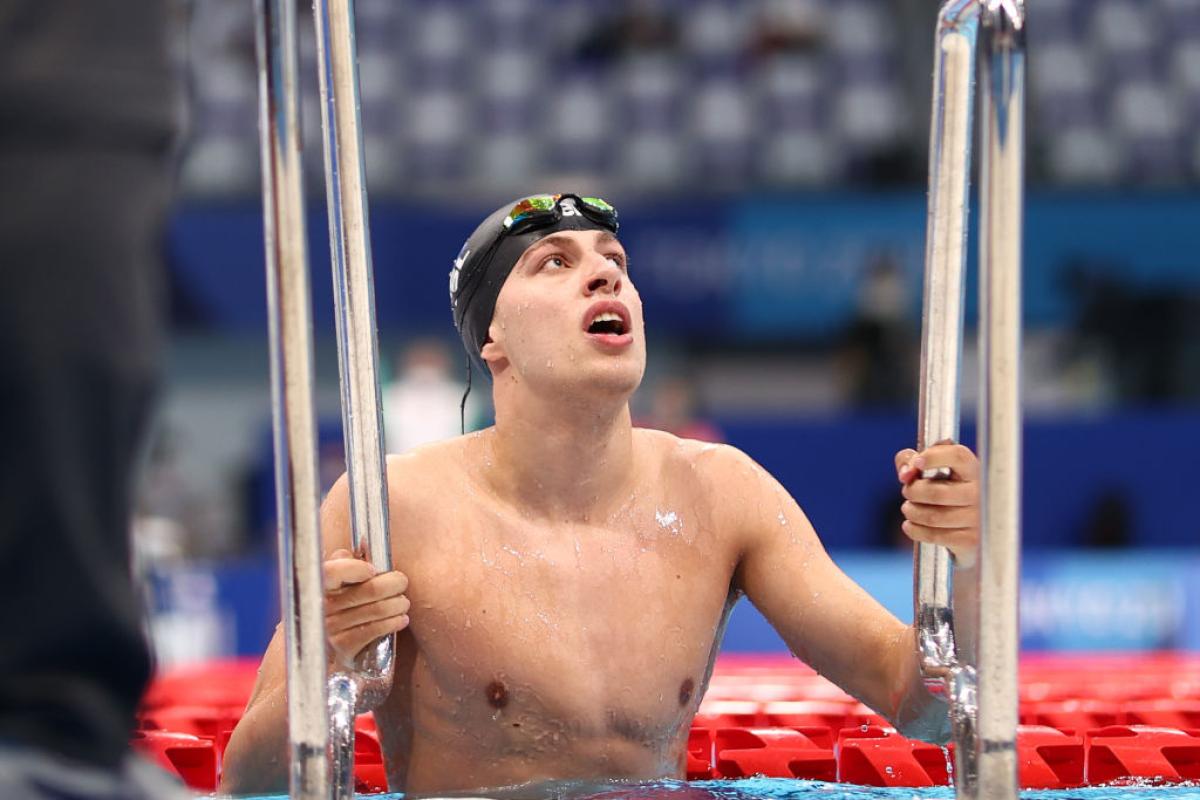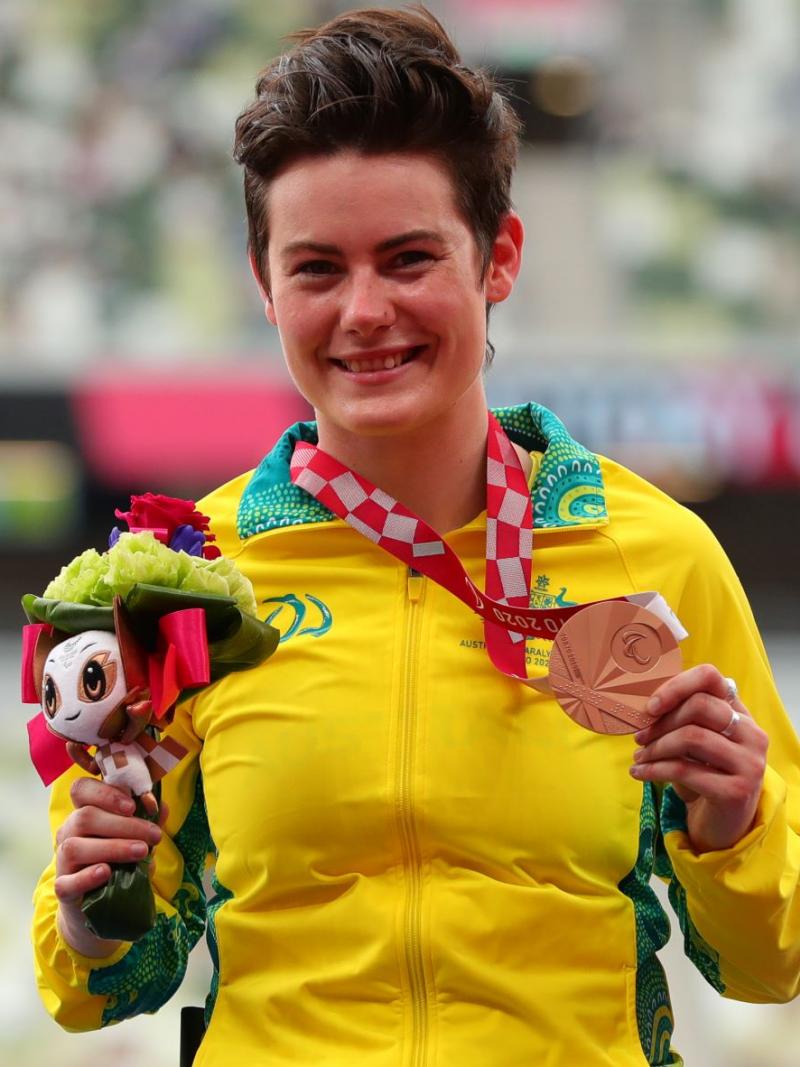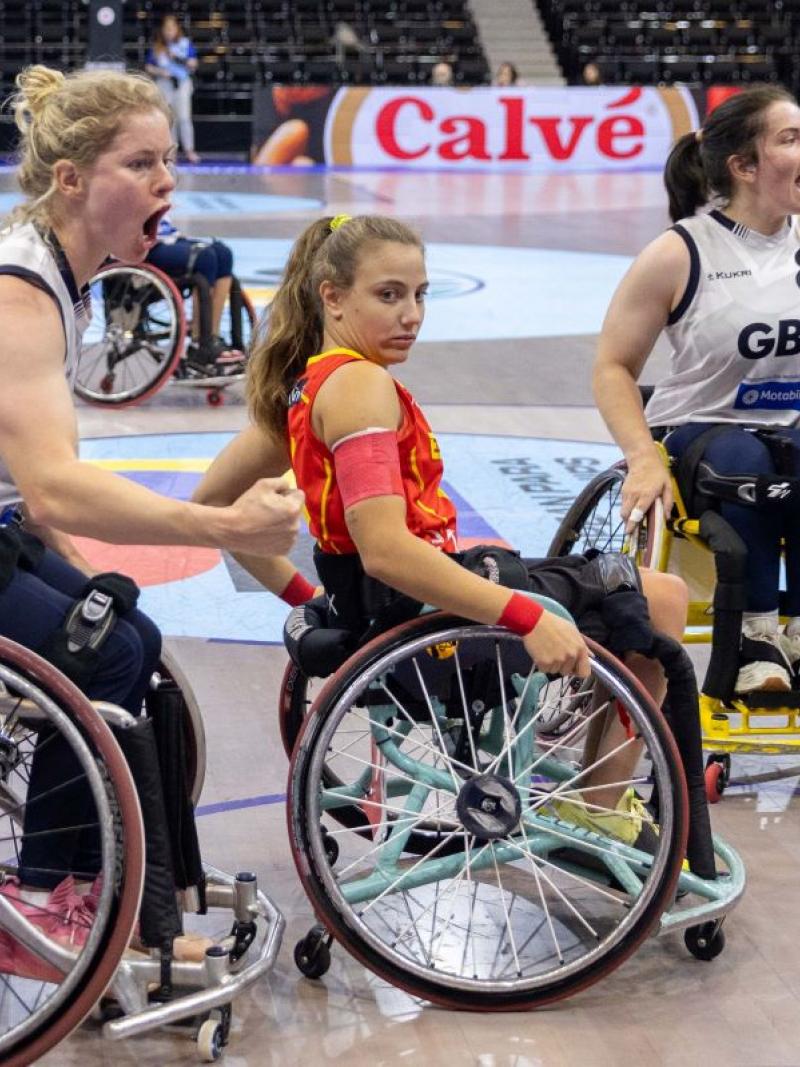Pride Month Q&A with Para swimmer Mar Gunnarsson
Iceland’s two-time Paralympic swimmer Mar Gunnarsson joined the IPC’s TikTok live to celebrate Pride Month 28 Jun 2025
Pride Month is a time to celebrate diversity and the power of being true to yourself. In a special TikTok live with @Paralympics this month, Mar Gunnarsson shared his incredible journey, from representing Iceland in Para swimming at two Paralympic Games, pursuing a career in music, and coming out publicly on television just before Tokyo 2020.
Follow along as Gunnarsson speaks about his experiences as an athlete with a vision impairment and a proud member of the LGBTQ+ community, and why he invites you to celebrate Pride Month with him.
IPC: How did you take up Para swimming?
I've been swimming now for 12 years, which has been an incredible journey. Swimming would probably not have been my first choice if I had full vision, but swimming just seemed like the right thing.
Swimming is a huge part of our culture in Iceland. Although I did not start training until I was 13, I've been swimming pretty much since I was born.
IPC: Can you tell us about your experience at the Paris 2024 Paralympics?
Paris 2024 was very different from Tokyo 2020 three years earlier. I had always wanted to visit Paris and I really liked the Games. It was overall an amazing experience that I would definitely not miss.
IPC: What was it like to carry Iceland’s flag during the Opening Ceremony in Paris?
It was fun. What are the chances of walking down the Champs Elysees with the flag, (in front of) all the volunteers and the crowd? I think there were something like 60,000 people who came to the plaza to witness the Opening Ceremony. It was truly special, and I’ll always hold that moment dear to my heart.
IPC: On top of being a two-time Paralympian, you also have a second side to your life as a musician. How did you get started in music?
When I was six years old, my parents moved with me to Luxembourg because the school system was not ready to embrace me and support me in my education as a blind kid. I lived in Luxembourg for six years, and during my stay there I was invited to start playing piano.
IPC: What do you love about being a musician?
It’s cliche, but obviously music is a form of expression. I love listening to music. I love playing music. I love writing my own songs and I love experimenting with music. And I really love people working in music. I find that I fit in with my music friends and I just love being in that environment.
I am now based in Manchester, UK, where I study at the Royal Northern College of Music. It’s an amazing environment. I’m meeting interesting people and there are many things here that influence me, and I really like that.
IPC: What are some of the challenges you’ve had to face?
I would say that I’ve been very fortunate – I am healthy, and I have a healthy family. I have very good people around me.
But I would say that there are a few things that have been difficult for me. Obviously, growing up and having to learn where my limits (was a challenge) because with the vision that I had when I was a kid, I did lots of things, like running and biking, that thinking back, I’m like, ‘Thank God nothing bad happened’.
When I got older, when I was discovering my sexuality, being gay has never been an issue for anyone in my family. My parents even told me that, ‘Mar, if you ever come out one day, that would be just the most normal thing ever. No problem at all.’ But sometimes we can be our worst enemy. (It wasn’t about) not accepting being gay but learning how to deal with it. Iceland is not a very big country, and 18-year-old Mar felt very alone at times. Some feelings just really creep up on you and you shouldn’t let it ruin your day in that sense.
Pride in diversity
IPC: We are happy to hear that your family was supportive of your coming out. What has the journey been like for you as an out and proud athlete?
It has been great. I came out during a television interview in Tokyo in 2021. It was so sweet because it went viral on Icelandic media and the support I received was just incredible with the amazing comments online. Yes, there were obviously some nasty ones too, but I think my mum found all of them and shot them down. My mum is very tough when it comes to these things.
My journey has been good. My Federation has been supportive; all my coaches have been very supportive.
IPC: Why did you choose to come out on television? Was that a storyline that you were willing to share about yourself?
It happened on the spot. What I thought was interesting is that before I said it on television, all my friends and all my family members knew. But if I met someone on the street who I did not speak with on a regular basis, it was hard to just acknowledge and say, ‘Oh no, I don’t have a girlfriend, I have a boyfriend.’ It was sometimes a little bit hard to say it out loud. But once that interview was over, it showed me that, ‘Why? Why should I be afraid?’ It gave me more confidence so I’m very happy that this interview happened.
IPC: Do you have a message to people who want to be allies to the disability and LGBTQ+ community? What can people do to support and be an ally?
I think our daily behaviour is most important – how we speak to people, how we raise our kids, how we interfere if we see something wrong. I think as a community, we tend to turn a blind eye towards problems instead of facing them. Whether it’s supporting someone with a disability or standing up for someone who is being (bullied) because of their sexuality, I think we as a community we must stand together.
There are great resources out there that you can follow - just find people who interest you and connect with them. Say hello because it’s incredible with modern age, how willing people are often to connect and share experiences.






